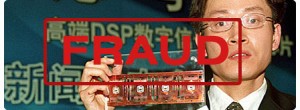
 It is a fact that many fraud schemes are discovered by accident. Usually, detecting a scam is not during a regular audit. For this reason, it is all the more important that some aspects of good internal control should be adopted as much as possible. For instance, aspects include the ability to authorize recording of changes to assets value in the financial records, physical access to the same assets.
It is a fact that many fraud schemes are discovered by accident. Usually, detecting a scam is not during a regular audit. For this reason, it is all the more important that some aspects of good internal control should be adopted as much as possible. For instance, aspects include the ability to authorize recording of changes to assets value in the financial records, physical access to the same assets.
To determine fraud, you should have someone in authority in the organization, most preferably an owner in a small business, to receive unopened bank statements directly. You should inspect the payee endorsements and names. Watch out for various endorsements and unusual payees, most especially variations of vendor names. Get someone independent of cash disbursement duty to trace all cancelled checks periodically.
Internal control issues should be discussed to outsider or internal auditors and if you don’t have a CPA, consider having one even though you do not need an actual audit. If you cannot account for poor cash flow performance, you might want to consider a CFE or a Certified Fraud Examiner. He or she could help you assess the situation and could recommend the best course of action to take.